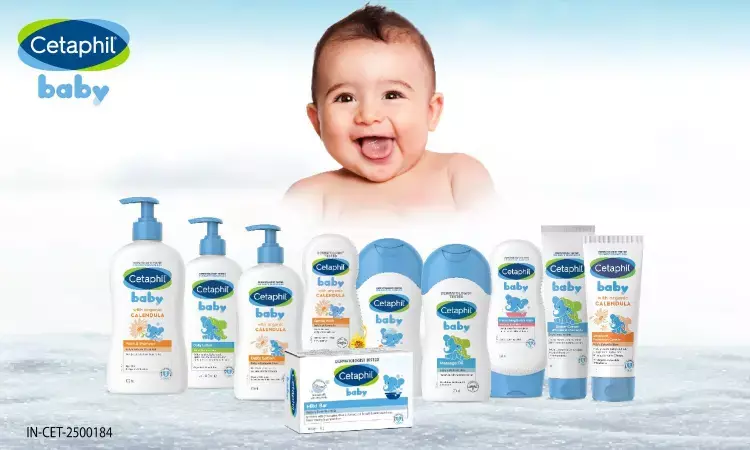- Home
- Medical news & Guidelines
- Anesthesiology
- Cardiology and CTVS
- Critical Care
- Dentistry
- Dermatology
- Diabetes and Endocrinology
- ENT
- Gastroenterology
- Medicine
- Nephrology
- Neurology
- Obstretics-Gynaecology
- Oncology
- Ophthalmology
- Orthopaedics
- Pediatrics-Neonatology
- Psychiatry
- Pulmonology
- Radiology
- Surgery
- Urology
- Laboratory Medicine
- Diet
- Nursing
- Paramedical
- Physiotherapy
- Health news
- Fact Check
- Bone Health Fact Check
- Brain Health Fact Check
- Cancer Related Fact Check
- Child Care Fact Check
- Dental and oral health fact check
- Diabetes and metabolic health fact check
- Diet and Nutrition Fact Check
- Eye and ENT Care Fact Check
- Fitness fact check
- Gut health fact check
- Heart health fact check
- Kidney health fact check
- Medical education fact check
- Men's health fact check
- Respiratory fact check
- Skin and hair care fact check
- Vaccine and Immunization fact check
- Women's health fact check
- AYUSH
- State News
- Andaman and Nicobar Islands
- Andhra Pradesh
- Arunachal Pradesh
- Assam
- Bihar
- Chandigarh
- Chattisgarh
- Dadra and Nagar Haveli
- Daman and Diu
- Delhi
- Goa
- Gujarat
- Haryana
- Himachal Pradesh
- Jammu & Kashmir
- Jharkhand
- Karnataka
- Kerala
- Ladakh
- Lakshadweep
- Madhya Pradesh
- Maharashtra
- Manipur
- Meghalaya
- Mizoram
- Nagaland
- Odisha
- Puducherry
- Punjab
- Rajasthan
- Sikkim
- Tamil Nadu
- Telangana
- Tripura
- Uttar Pradesh
- Uttrakhand
- West Bengal
- Medical Education
- Industry
Neonatal and Infant Skincare: Indian Healthcare Professionals Perspectives on Parent's Awareness and Product Prescription Patterns

Proper product prescription and utilization by Healthcare professionals (HCP's) and parents is key to ensuring healthy skin development in newborns, a recent study has concluded. An extensive skincare routine with gentle cleansers, moisturizing lotions, and barrier creams from an early stage is essential for protecting newborn skin and ensuring desired results.
This study has been published in the September 2024 issue of Journal of Dermatology Research.
The survey study aimed to provide insights into optimal baby skincare practices as per Indian Dermatologists, Paediatricians, and Cosmetologists, focusing on product prescribing patterns in India and parental awareness of neonatal and infant skincare essentials.
A total of 59 healthcare professionals participated in this survey on the Cetaphil Baby product range (Galderma), assessing product prescribing patterns and parental awareness about available products.
Data was collected from 254 infants, comprising 52% boys and 48% girls. The majority of babies (82%) were > 2 months old, and had medical skin conditions (74%).
Some of the key results from the study are:
Skin Conditions:
- The most frequently encountered skin issues in newborns and infants were dry skin affecting 29%, atopic dermatitis observed in 28%, and diaper rash reported in 15% of cases. (fig. 1)
Figure 1: Common skin conditions in infants.
Skincare Products Prescribing Pattern:
- Lotions were commonly prescribed for 35% of infants, followed by liquid cleansers for 26%, syndet bars for 25% and diaper rash cream for 14% of infants. (fig. 2)
- Liquid cleansers and syndet bars were favoured by HCP’s for their gentle, non-irritating qualities, making them suitable for significant number of newborns (49%). (fig 3)
Figure 2: Commonly prescribed skincare products.
Figure 3: Reasons for prescribing liquid cleansers or syndet bars.
- 27% of infants were prescribed cleansers based on their clinical condition, while 16% received them based on the expertise and preference of HCPs.
- 30% of infants were prescribed liquid cleansers for two to three months.
- Significant number of babies (69%) were prescribed a complete regimen, including a cleanser, lotion, and diaper cream. (fig 3)
Parental Awareness:
- 63% of parents were aware of availability of liquid cleansers for newborns.
- 62% of parents know the difference between syndet bars and regular soaps.
- 57% of parents inquired about the use of baby wipes for newborns.
Importance of Comprehensive Infant Skincare
Newborns and infants have physiologically fragile skin, with reduced resistance to trauma and environmental aggression. The skin of babies is thinner, less functionally capable and more prone to skin conditions and irritation than that of adults. Baby skin requires specially formulated skin care products that are Gentle and non-irritating, Hypoallergenic and highly tolerable and help to normalize the skin’s pH.
This Survey Study revealed that lotions, liquid cleansers and syndet bars were the one of most commonly utilised products clinically, with liquid cleansers and syndet bars preferred for their gentle and non-irritating properties. Proper cleansing and appropriate moisturization plays a vital role in supporting overall healthy skin development in babies.
This study highlights the importance of following a Holistic skincare regimen in babies that includes gentle cleansers, moisturizing lotions, and barrier creams from an early stage. Implementing these practices can significantly contribute to maintaining healthy skin in neonates and infants, ensuring optimal skin protection and development.
References:
Duwarah S, et al. A Survey on Neonatal and Infant Skincare: Indian Dermatologists, Pediatricians and Cosmetologists' Perspective on Product Prescription Pattern and Parents’ Awareness. J Dermatol Res. 2024;5(3):1-6. https://doi.org/10.46889/JDR.2024. 5302
Stamatas GN, et al. Int J Cosmetic Sci 2011;33(1)17–24
Madhu, R., et al. Indian Pediatrics 58.2 (2021): 153-161.
Fernandes JD, et al. An Bras Dermatol 2011;86(1)102–110
Veeva code : IN-CET-2500184
Disclaimer: Sponsored Article
Dr Kamal Kant Kohli-MBBS, DTCD- a chest specialist with more than 30 years of practice and a flair for writing clinical articles, Dr Kamal Kant Kohli joined Medical Dialogues as a Chief Editor of Medical News. Besides writing articles, as an editor, he proofreads and verifies all the medical content published on Medical Dialogues including those coming from journals, studies,medical conferences,guidelines etc. Email: drkohli@medicaldialogues.in. Contact no. 011-43720751


